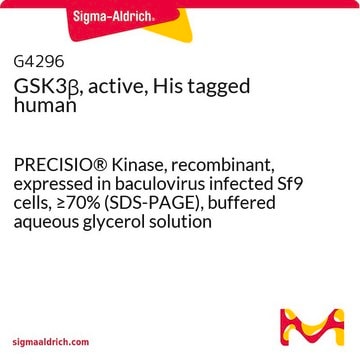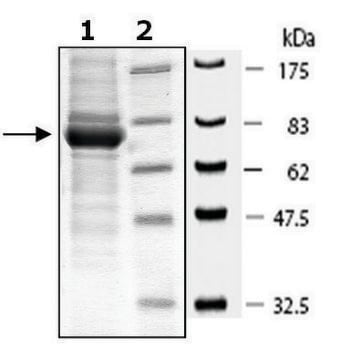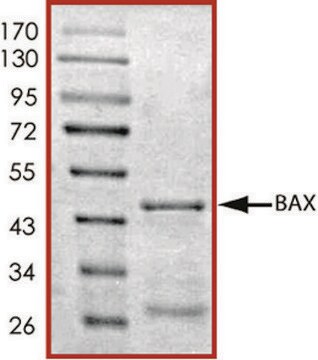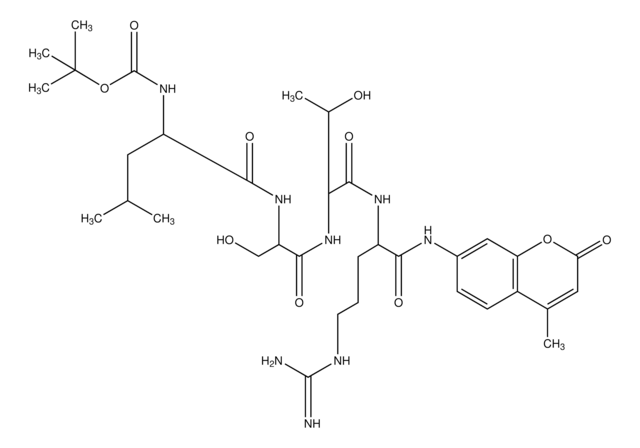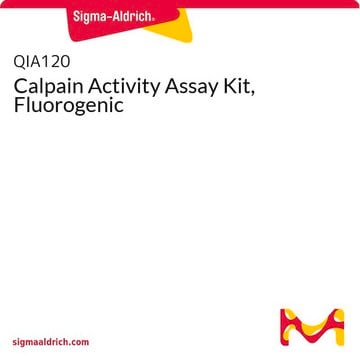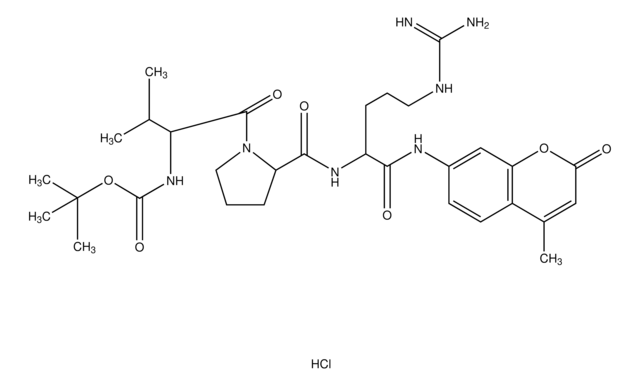SRP0356
GSK3β active human
recombinant, expressed in baculovirus infected Sf9 cells, ≥80% (SDS-PAGE)
Synonym(e):
glycogen synthase kinase 3 beta
About This Item
Empfohlene Produkte
Biologische Quelle
human
Rekombinant
expressed in baculovirus infected Sf9 cells
Assay
≥80% (SDS-PAGE)
Form
aqueous solution
Spezifische Aktivität
≥500 pmol/min-μg
Mol-Gew.
73 kDa
Verpackung
pkg of 10 μg
Methode(n)
activity assay: suitable
inhibition assay: suitable
NCBI-Hinterlegungsnummer
UniProt-Hinterlegungsnummer
Versandbedingung
dry ice
Lagertemp.
−70°C
Angaben zum Gen
human ... GSK3B(2932)
Allgemeine Beschreibung
Anwendung
Biochem./physiol. Wirkung
Lagerklassenschlüssel
12 - Non Combustible Liquids
WGK
WGK 1
Flammpunkt (°F)
Not applicable
Flammpunkt (°C)
Not applicable
Analysenzertifikate (COA)
Suchen Sie nach Analysenzertifikate (COA), indem Sie die Lot-/Chargennummer des Produkts eingeben. Lot- und Chargennummern sind auf dem Produktetikett hinter den Wörtern ‘Lot’ oder ‘Batch’ (Lot oder Charge) zu finden.
Besitzen Sie dieses Produkt bereits?
In der Dokumentenbibliothek finden Sie die Dokumentation zu den Produkten, die Sie kürzlich erworben haben.
Unser Team von Wissenschaftlern verfügt über Erfahrung in allen Forschungsbereichen einschließlich Life Science, Materialwissenschaften, chemischer Synthese, Chromatographie, Analytik und vielen mehr..
Setzen Sie sich mit dem technischen Dienst in Verbindung.
